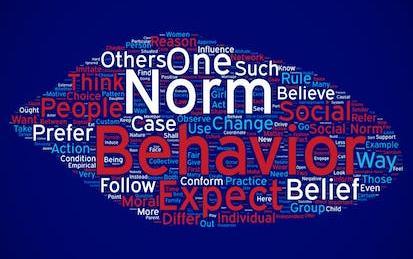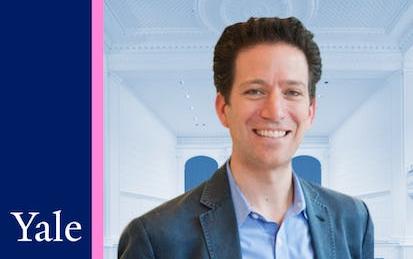

Our Courses

Designing and Building Institutional Anti-Racist Spaces
Designing and Building Institutional Antiracist Spaces (D-BIAS) is a course whose mission is to teach tenets of equity, anti-racism, and cultural justice and how to apply these ideas to achieve social change. The course is aimed at educators and administrators in educational spaces, lawyers and advocates in spaces that touch civil rights, equity, and whose Institutional mission it is to achieve greater cultural equity. The course involves creative approaches to social justice, racial justice, and advocacy while remaining open to anyone from any background who shares the same vision of the wo
-
Course by

-
 Self Paced
Self Paced
-
 21 hours
21 hours
-
 English
English

ART of the MOOC: Activism and Social Movements
This course is for activists, artists, and thinkers who wish to better understand and participate in social change. We will focus on the prolific and exciting overlap between socially engaged art and cultural practices generated by recent social movements around the world. Rather than assess the political efficacy of activities like mourning, listening, organizing, dancing, or partying, the lectures examine such cultural activities next to, and within, contemporary art practice.
-
Course by

-
 Self Paced
Self Paced
-
 10 hours
10 hours
-
 English
English

Strategies for Planned Social Change with Jagdish Sheth
Many social issues are within the realm of public policy and civil organizations (NGOS), but corporations can also enable and champion social change. The business of business is more than business. As more and more companies engage in corporate social responsibility (CSR), they need to understand the ultimate users’ perceptions and motivations.
-
Course by

-
 Self Paced
Self Paced
-
 6 hours
6 hours
-
 English
English

Innovative Finance: Hacking finance to change the world
To address global poverty - do we really not have enough resources or do we not have the right tools to allocate our resources? The tools of finance, when applied correctly, can be an enabler of social and environmental outcomes. This course is designed to give you the ability to build innovative financing strategies that work towards outcomes such as financial inclusion, access to energy, and access to education. The innovative finance process has five key components.
-
Course by

-
 Self Paced
Self Paced
-
 19 hours
19 hours
-
 English
English

Network Dynamics of Social Behavior
How do revolutions emerge without anyone expecting them? How did social norms about same sex marriage change more rapidly than anyone anticipated? Why do some social innovations take off with relative ease, while others struggle for years without spreading? More generally, what are the forces that control the process of social evolution –from the fashions that we wear, to our beliefs about religious tolerance, to our ideas about the process of scientific discovery and the best ways to manage complex research organizations? The social world is complex and full of surprises.
-
Course by

-
 Self Paced
Self Paced
-
 5 hours
5 hours
-
 English
English

Political Economy of Institutions and Development
This course is part of the SDG initiative addressing the UN Sustainable Development Goals, specifically for the following SDGs [1, 8, 10 and 16]. We hope you will join in our efforts to reach the SDG’s in small but measurable and actionable ways, cooperating with Development Done Differently. Expand your impact. You can create a better world. In today’s world, politics and economics are interconnected, but what is the nature of this connectivity?
-
Course by

-
 Self Paced
Self Paced
-
 22 hours
22 hours
-
 English
English

Gender, Family, and Social Change in Contemporary South Korea
This course examines the transformation of Korean society beginning around the turn of the 20th century to contemporary times. In particular, it explores how shifting categories of masculinity, and by contrast, femininity have impacted upon, and in turn been influenced by social, cultural, and political change.
-
Course by

-
 Self Paced
Self Paced
-
 17 hours
17 hours
-
 English
English

Designing the Future of Work
The workplace of tomorrow is an uncertain place. We live in a rapidly changing world, and design innovations such as artificial intelligence (AI), robotics, and big data are rapidly changing the fundamental nature of how we live and work. As these technologies continue to evolve at an exponential rate - it is becoming critical to understand their impact on contemporary work practices, and for businesses and employees to understand how to design a secure future amidst this disruption. What new, disruptive technologies are on the horizon? How will jobs change?
-
Course by

-
 Self Paced
Self Paced
-
 13 hours
13 hours
-
 English
English

From Freedom Rides to Ferguson: Narratives of Nonviolence in the American Civil Rights Movement
The Modern Civil Rights Movement is a significant landmark in United States history. This movement was a struggle for human rights directly challenging the nation to extend its democratic principles to African Americans and all peoples. This course sheds light on the often overlooked strategic planning that supported the direction of the events and is told by a voice intimately involved in the organization of movement—Dr. Bernard LaFayette, Jr.
-
Course by

-
 Self Paced
Self Paced
-
 15 hours
15 hours
-
 English
English

A Guide to Diversifying and Transforming Football Leadership
Football is a globally followed and revered sport. In recent years, concerns over diversity and discrimination in the beloved sport have made international headlines. This has put a spotlight on the lack of representation both on and off the football pitch. The disparity in football leadership representation is even more apparent when gender, race and ethnicity comes into play. This MOOC aims to understand, explore and ultimately address the exclusion of women and people of ethnic minority background (WEM) in football organizations.
-
Course by

-
 Self Paced
Self Paced
-
 9 hours
9 hours
-
 English
English

Storytelling for Social Change
Use stories to deliver messages that affect people. Learn how to craft a story that develops empathy and delivers impact.
-
Course by

-
 Self Paced
Self Paced
-
 English
English

Social Norms, Social Change II
This course is Part 2 of the Social Norms, Social Change series. In this course, we will examine social change, the tools we may use to enact change, and put into practice all we have learned in Part 1. See Social Norms, Social Change Part I at this link: https://coursera.org/learn/norms This course covers scripts and schemas, the cognitive structures in which social expectations are embedded, and their relationship with social norms. The course then examines the essentials of norm abandonment, including the relations between personal beliefs and social expectations.
-
Course by

-
 Self Paced
Self Paced
-
 9 hours
9 hours
-
 English
English

Social Norms, Social Change I
This is a course on social norms, the rules that glue societies together. It teaches how to diagnose social norms, and how to distinguish them from other social constructs, like customs or conventions. These distinctions are crucial for effective policy interventions aimed to create new, beneficial norms or eliminate harmful ones. The course teaches how to measure social norms and the expectations that support them, and how to decide whether they cause specific behaviors.
-
Course by

-
 Self Paced
Self Paced
-
 13 hours
13 hours
-
 English
English

Storying the Self for Leadership and Creativity
If you're moving into a leadership position, interested in thinking deeply about identity, or exploring the role of creativity in your life, this specialization is for you! Stories are powerful catalysts for social change that can contribute to greater equity and inclusion across a range of diverse human experiences and identities. Stories can limit or define us, and they can also be reconstructed, questioned, tinkered with, and used to reconsider or expand possibilities for your life and communities.
-
Course by

-
 Self Paced
Self Paced
-
 English
English

Social Entrepreneurship
In this specialization you will learn how to create societal impact through Social Entrepreneurship. Social Entrepreneurship describes the discovery and sustainable exploitation of opportunities to create social change. We will introduce you to examples of Social Entrepreneurship and guide you through the process of establishing a venture to address a social or environment problem. You will form of team and study a problematic issue to learn more about the source of the problem. We will equip you with frameworks identifying opportunities, support your team, and outlining your idea.
-
Course by

-
 Self Paced
Self Paced
-
 English
English

Music and Social Action
What is a musician’s response to the condition of the world? Do musicians have an obligation and an opportunity to serve the needs of the world with their musicianship? At a time of crisis for the classical music profession, with a changing commercial landscape, a shrinking audience base, and a contraction in the number of professional orchestras, how does a young musician construct a career today?
-
Course by

-
 Self Paced
Self Paced
-
 26 hours
26 hours
-
 English
English

Disciplined Approach to Social Entrepreneurship
Social entrepreneurs transform societies across the world. Further your passion for social change by gaining the relevant knowledge and tools to build a strong, sustainable business entity committed to social innovation.
-
Course by

-
 Self Paced
Self Paced
-
 16
16
-
 English
English
Transmedia Storytelling: Narrative worlds, emerging technologies, and global audiences
Transmedia storytelling is the practice of designing, sharing, and participating in a cohesive story experience across multiple traditional and digital delivery platforms - for entertainment, advertising and marketing, or social change. Have you ever read a book, seen a movie, watched a television show, or played a game that centred around different aspects of a larger story or universe? You may be familiar with popular examples of such universes like Star Wars, Marvel, and The Walking Dead (to name a few). How do the professionals develop such expansive narratives?
-
Course by

-
 Self Paced
Self Paced
-
 26 hours
26 hours
-
 English
English

Identifying Social Entrepreneurship Opportunities
This Course will clarify the definition and meaning of Social Entrepreneurship and will focus on the need to learn about the source and root of a social problem. You will be introduced to different perspectives about Social Entrepreneurship and you will learn about complementary and opportunistic assets which will help you to detect an opportunity and develop an idea of how to create a business for social change.
-
Course by

-
 Self Paced
Self Paced
-
 25 hours
25 hours
-
 English
English



